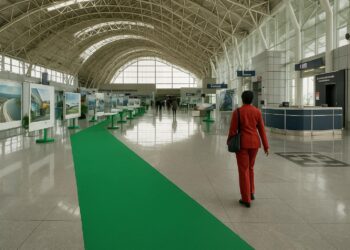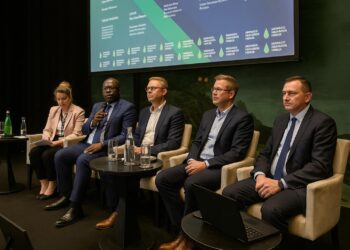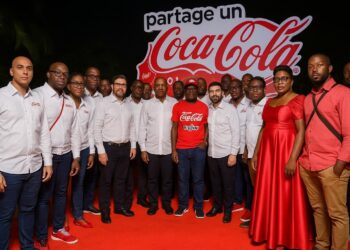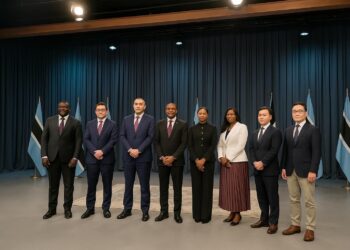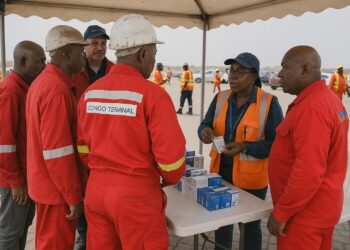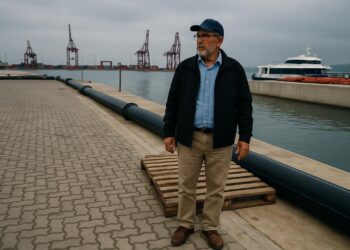Global mobilisation reinforces corporate solidarity
On 25 September 2025, Africa Global Logistics staged the second edition of its Solidarity Day, mobilising 23,000 employees across 50 countries to focus on community health, a theme selected to underline how a supply-chain leader can translate corporate reach into local impact.
The day unfolded simultaneously in ports, warehouses and offices from Pointe-Noire to Jakarta. Teams rehabilitated clinics and classrooms, donated diagnostic equipment, organised free screenings and accompanied vulnerable groups, generating donations valued at more than €167,000 and supporting dozens of institutions (Journal de Brazza, 25 September 2025).
Speaking for the group, Communication and Philanthropy Director Khadija Komara said the initiative proves that AGL wishes “to go beyond our logistical role to act concretely for community well-being,” by pairing multinational scale with on-the-ground proximity.
Congo teams anchor health focus with blood drive
In the Republic of Congo, more than 1,500 employees from Africa Global Logistics Congo, Congo Terminal and Terminaux du Bassin du Congo converged on Pointe-Noire and Brazzaville to donate blood, echoing an earlier contribution of 2,500 collection bags to the National Blood Transfusion Centre.
Centre director Dr Serge Oscar Mokono described the response as “impressive” and emphasised that reliable blood stocks are critical for accident victims, patients with severe illnesses and surgical cases. The influx of corporate volunteers therefore supports public-sector efforts to stabilise lifesaving supplies.
Solidarity Day is now a fixed calendar event for AGL. Each year a unifying theme steers country offices, allowing local management to tailor projects while contributing to a measurable global footprint that strengthens employee cohesion and showcases the firm’s environmental, social and governance positioning.
Strategic value for investors and authorities
For investors tracking African infrastructure, the programme offers insight into how non-financial performance metrics can mitigate social risk around critical corridors such as Pointe-Noire. By engaging nearby communities, operators reduce disruptions, enhance licence to operate and align with lenders’ sustainability covenants.
The blood drive also intersects with national public-health priorities outlined by Congo-Brazzaville’s Ministry of Health, which calls for stronger private participation in preventive care. AGL’s support illustrates a practical public-private partnership model that costs the treasury little while expanding access to essential inputs.
Beyond health, Solidarity Day activities renovated schools and clinics, signalling potential synergies with government ambitions to boost human-capital indicators. Refurbished classrooms, for example, aid the Education Strategy 2025, while upgraded dispensaries dovetail with the national Universal Health Coverage roadmap.
AGL’s ESG narrative and operational leverage
AGL operates ports, maritime and rail concessions across Africa and recently expanded in the Gulf of Guinea corridor. Management positions the company as a partner in continental transformation, arguing that logistics efficiencies must be coupled with social dividends to unlock sustainable growth.
Financially, the €167,000 value of donations remains modest compared with AGL’s turnover, yet the symbolic leverage is considerable. Analysts note that targeted, employee-driven contributions often create double dividends: reputational resilience for the firm and tangible services for under-resourced districts.
The event also serves as an internal talent-engagement tool. Human-resources teams report higher volunteer commitment and stronger cross-functional networks formed during planning exercises. Such soft-capital outcomes, though difficult to quantify, can reduce staff turnover and improve operational continuity in remote concessions.
Local authorities in Pointe-Noire praised the private sector’s mobilisation. According to municipal representatives, improved health services near the port can accelerate cargo handling by reducing absenteeism among dockworkers and truck drivers, offering operational benefits that ripple through regional supply chains.
Outlook for 2026 and beyond
For the diaspora and international financiers, Solidarity Day offers a case study in scalable corporate citizenship. The blueprint is simple: identify a pressing social gap, leverage logistical advantages, measure outcomes and communicate results transparently, thereby deepening stakeholder trust without overstretching core competencies.
Looking ahead, AGL has not yet announced the 2026 theme, but executives hint that climate resilience could feature prominently, aligning with Congo-Brazzaville’s aspirations to monetise its vast forest carbon assets while safeguarding communities along river and rail corridors.
Any future edition is likely to build on the methodology refined this year: central coordination, local autonomy and transparent reporting. Observers will watch whether donation volumes grow and whether partnerships with ministries evolve into structured memoranda for broader public-service delivery.
For now, the 2025 campaign demonstrates that a multinational can translate scale into solidarity without compromising operational performance. The logistics giant’s decision to foreground health resonates strongly in a region where access to safe blood remains a recurrent challenge.
Stakeholders interviewed during Solidarity Day expressed hope that similar initiatives by other operators will multiply the impact. As one volunteer in Brazzaville observed, “When logistics companies move, entire ecosystems move with them.” That momentum may yet redefine the social contract around Africa’s trade gateways.


































